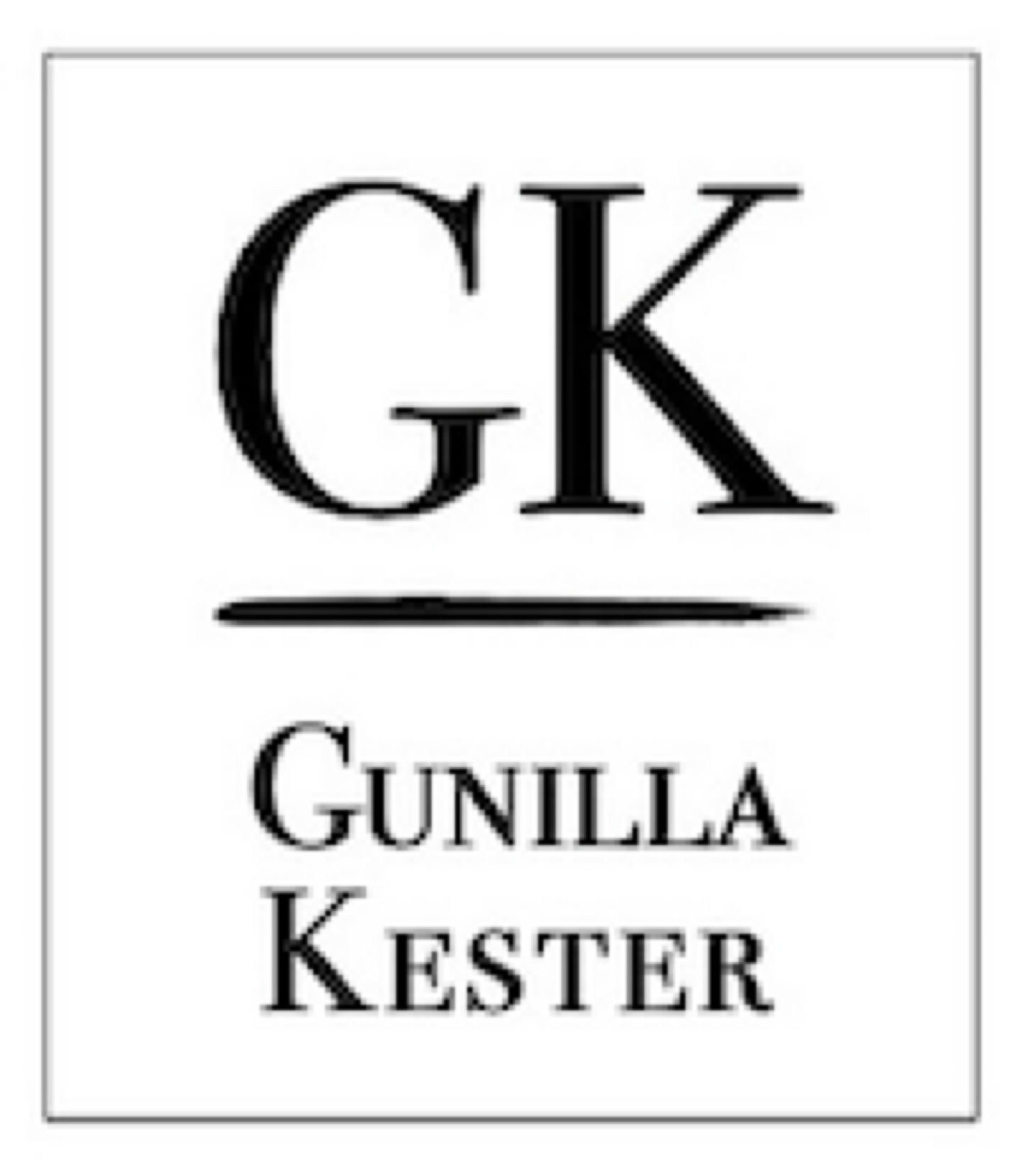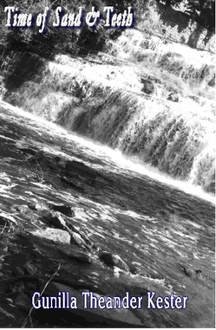Books, Blogs, Articles
Why Gunilla Writes
“When I was eight years old, I was hit by a car, a red Saab, and taken to the hospital where I had to remain for more than a week with a serious concussion. When I came home to our third floor apartment, the walls moved back and forth and the floor heaved like an ocean. I also discovered that words had colors. I got some simple notebooks meant for school and started collecting all the blue words in one, the purple ones in another, the yellow in a third and so on. The day I began mixing the different colored words, I became a painter of words. Rhythm came later and then I became a musician of words. Eventually, I started to pay attention to the meaning of words, and that was probably the moment when I became a poet. My first two poems were published in a collection called “Angels Cry,” in 1974 when I was 15-16 years old. Reading them today, I think I know why the angels were crying.
Books
-
The Empty Chair: Love and Loss in the Wake of Flight 3407
An anthology of memoirs, stories, poems, letters, and photos honoring the victims of Flight 3407, which crashed in Clarence Center near Buffalo, NY, February 12, 2009.
All 49 people on board as well as one man whose house was hit by the airplane were killed. This anthology is dedicated to the victims of that flight and to their families and friends.
More than 60 contributors submitted poems, stories, personal journal entries, letters, memories, and photographs for and about the victims of Flight 3407. The Empty Chair serves as a remembrance and vehicle to express the emotions and grief of the contributors and our community.
The anthology was released on the first anniversary of the tragic crash, February 12, 2010. The book launch was Thursday, February 18, 2010, at Talking Leaves Books in Buffalo, NY.
The Empty Chair is published by The Writer’s Den and co-edited by Gunilla T. Kester and Gary Earl Ross.
Read Forward 3407 Anthology here.
166 pages, Paperback
Published January 22, 2010
ISBN 978-0-557-28906-6
-
Mysteries I-XXIII
ISBN 978-1-59924-897-4
Mysteries I-XXIII is my tribute to my friend Cantor Susan Alice Wehle who died tragically in the crash of flight 3407 on February 12, 2009. Susan taught me a lot; without her I wouldn’t have survived losing her.
-
The Still Empty Chair: More Writings Inspired by Flight 3407
The Still Empty Chair includes more than 50 contributions including poems, lyrics, photographs, eulogies, memories, and reflections for and about the victims of Flight 3407, which crashed near Buffalo, NY on February 12, 2009, killing all 49 people on board as well as one man whose house was hit by the plane.
Front cover artwork created by Buffalo artist Hugo Rodriguez. Back cover artwork includes, “The Faces of Flight 3407” and “The Red Scarf” by Michael Procknal III.
This book includes a CD recording of musical composition, "Toward the Light (Flight 3407)," composed by distinguished professor and composer James Piorkowski and inspired by a poem from The Empty Chair, written by Jane Sadowsky.
Co-edited by Gunilla Theander Kester and Gary Earl Ross.
ISBN 978-1-257-09789-0
-
Poems written in and inspired by America, Sweden, and Ghana.
ISBN 9781329751491
Publisher: The Writers Den
Published: December 11, 2015
-
Time of Sand & Teeth
ISBN 1-59924-383-0
Many friends and colleagues ask me about the title, which comes from the title of my perhaps most successful poem. I grew up on the Baltic Sea, close to the beach. We didn’t have as much stuff or food as we have today. You got one sandwich in the morning to take along to the beach. If you dropped it in the sand, which I invariably did, you had a choice: either eat it, sand and all, or go hungry. So, of course, I ate it. About a month after September 11, I was driving home and all of a sudden I remembered that gritty feeling of sand between the teeth. I went home and wrote a poem about it. This was the start of my writing poetry in English.
-
This study explores the difference between the African American and the European Bildungsroman. Theoretical and textual, it focuses on issues of subjectivity, gender, and history in maturation stories by Ralph Ellison, Toni Morrison, Gayl Jones, Charles Johnson, and Sherley Anne Williams. The comparative discussion of the African American tradition of self-representation, the European tradition of the Bildungsroman, and postmodernist notions of subjectivity elucidates fundamental traits of the African narrative of Bildung.
Series: American University Studies (Book 54)
Paperback: 178 pages
Publisher: Peter Lang Inc., International Academic Publishers (February 1, 1997)
Language: English
ISBN-10: 0820437271ISBN-13: 978-0820437279
Poetry Collection
Gunilla Kester’s poem “Time of Sand and Teeth” won the Gival Press Tri-Language English Competition in 2001, and she has been a Finalist in The Glimmer Train Open. Her poems have appeared in Not Just Air, Oberon, Radiance, and The Buffalo News. She has poems in Waging Words for Peace; Buffalo Poets Against War (ed. by Chuck Culhane), Poetic Voices Without Borders I and Poetic Voices Without Borders II (both ed. by Robert L. Giron), winner of the 2009 National Best Book Award for Fiction & Literature: Anthologies, sponsored by USA Book News. She was invited to submit a poem for Nickel City Nights (ed. by Gary Earl Ross) and to write a forward note for Mr. Ross’ new novel, Blackbird Rising: A Novel of the American Spirit, released in 2009.
Gunilla’s full-length manuscript “Shiri’s Piano” was a Finalist for the May Swenson Poetry Award 2009. “Shiri’s Piano” also won an International Publishers Prize from Atlanta Review and was published in its Oct. 2008 International Issue, and distributed in more than 120 countries.
“The Mountain: Grieving for Harmony,” was a Finalist for the Colorado Prize in poetry in 2005.
“I Came to Your Country: Eva’s Song” was nominated for a 2010 Pushcart Prize from the editors of Not Just Air.
“In My Home Town Martin Luther is Still King” was a Finalist in New Millennium Writings, 2008.
In 2006, “Day Dream,” won Special Recognition from In Other Words.
Dr. Gunilla Kester’s collection continues to grow. Visit often!
Blog Posts
Immigrant Makes Buffalo Home.
Thursday, December 18, 2008
Buffalo is a writers’ town. Definitely. It has been a city of immigrants for so many generations that people’s awareness of language influences all communication, infuses all word-usage. Few people here conceive of language as a clear, transparent glass-window that effortlessly and efficiently translates meaning and ideas into syntax and sentences. Far too many people have grown up among people who struggled with language, its place in our lives, its pronunciation, its order. To the immigrant, language infringes on who we are, transgresses personality, and this daily struggle with language becomes fertile soil for writers.
I came to Buffalo over twelve years ago when my husband accepted a job at a business on Hertel Avenue and have probably lived here longer than in any other place. I still remember driving around Buffalo for the first time, how I fell in love with her poverty, her dignity, her worn streets and old brick, her wide parks, lofty bridges and borderland character. Buffalo had personality, I felt, Buffalo had history. I liked that. My birth town, Lund in southern Sweden, is over 2000 years old and its university is older than Harvard.
I used to think that the immigrant persona was a temporary one, that one day I would reach that magic line and sail across it and wake up on the other side—without an accent and as American as apple pie. But it doesn’t work that way. I may have become more American than Swedish now that I have lived here for over half of my life, but my identity as immigrant comes also from without, not only within. I don’t know how many times a week people ask me where I am from or comment on my name. Some days I am tempted to answer “My name is Mary” just to avoid a discussion of origin. It hardly helps that Gunilla is such a common name in Sweden.
So coming to Buffalo after years in other places in America was a relief. Here everybody has a story; if it is not a personal one, it is a family one. “My grandfather came from Poland.” “My great grandmother was Norwegian.” I felt at home. Here everybody has a smattering of “Immigrantish.” It was no big deal any more. So I went home and started writing in my adopted language. I felt free to write in my English (Swenglish). I didn’t feel I had to conform any more. Transience, deracination, change, and challenge were common here.
That is one reason why I am so very proud that author Gerda Weissmann Klein—Buffalo’s perhaps most famous immigrant and diplomat—has endorsed my forthcoming chapbook of poetry “Time of Sand and Teeth.” Her story is different from mine, but she too found a home in Buffalo and found Buffalo a place to begin to write and to shape her very unique literary voice.
The Buffalo News: Poems & Articles
Click for full article
CLICK FOR FULL ARTICLE
CLICK FOR FULL ARTICLE















